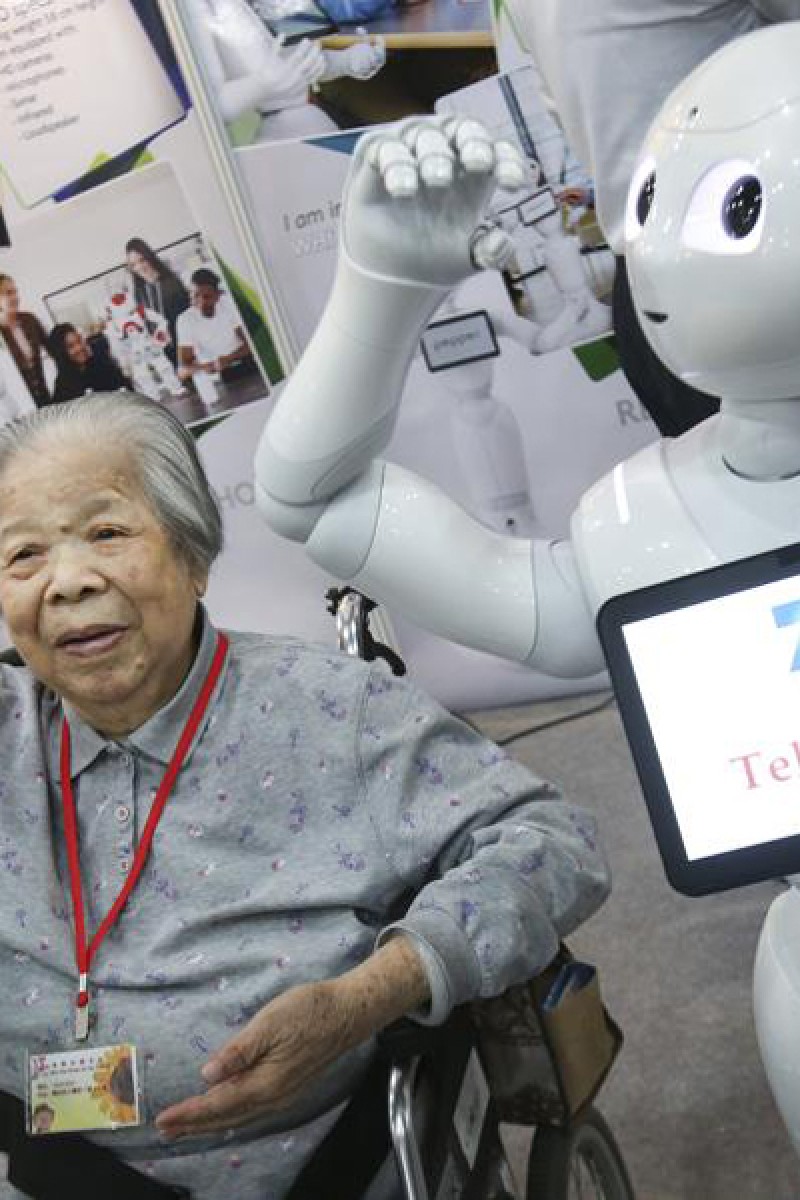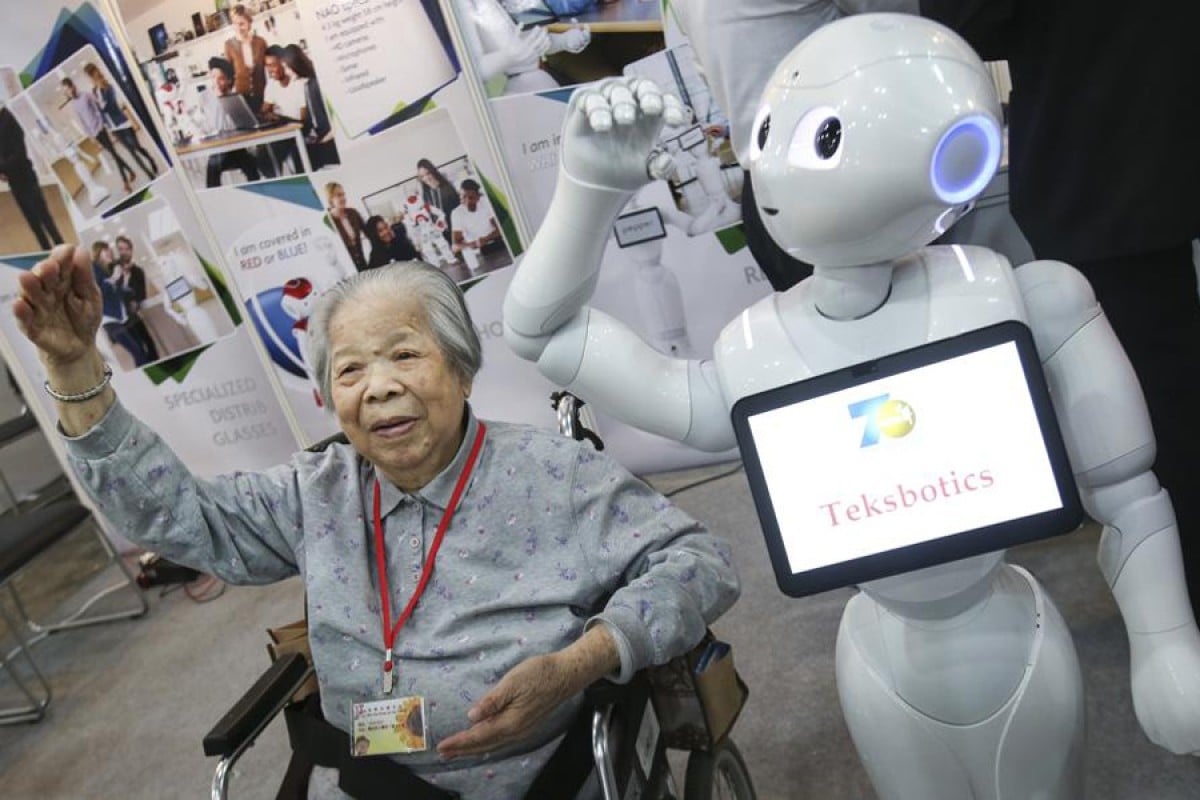
Can robotics and AI technology help Hongkongers lead a healthier lifestyle?
Sponsored feature
 Can this robot help this grandma eat healthier and be more active?
Can this robot help this grandma eat healthier and be more active? Hong Kong is facing the combined challenges of an ageing population and a shortage of doctors. The current trend in medical investment, not only in Hong Kong but also in many other developed countries, is to transform the existing system from disease treatment to preventive health care.
The idea is to create a “robot doctor” that accesses personal daily food intake, so that any undesirable eating habits potentially linked to chronic diseases can be identified. The “robot doctor” can also nudge users to a healthier lifestyle by analysing food consumption and providing advice on the kind of food to eat.
The robot is a computer program with intelligence that collects personal lifestyle data for real-time health monitoring.
The AI technologies that Professor Ngo Chong-wah at City University of Hong Kong is researching help identify trends in health by analysing daily food intake. Basically, a user snaps a picture of a dish on a mobile device. The robot recognises the dish and matches it with items stored in its database, and then calculates calories and nutrition facts. By this easy and convenient way of food logging, users can check if their nutrients/calorie intake falls within the recommended range. For patients suffering from diabetes, obesity and food allergies, the robot warns the user about the suitability of a dish before consumption.
There are numerous commercial mobile apps that help users log food intake. However, most apps require users to manually input the name of each dish, which could be troublesome especially if the name of a dish is unknown. Users quickly give up an app for lack of user friendliness. One key objective of the research project led by Professor Ngo is to make food logging an easy, everyday habit.
This project has recently researched an artificial neural network that can recognise the ingredients and preparation and cooking methods of a dish. The recognition accuracy can be as high as 95 per cent for 172 popular Chinese dishes. The current food recognition engines on the market rely on the nutrition information compiled by dietitians to estimate the number of calories.
By knowing the ingredients and cooking methods of rich foods, the robot developed by Professor Ngo’s lab automatically estimates calories, nutrition and satiety index of food. This project has won two best research awards at prestigious conferences, and the long-term goal is to make food logging as easy as counting.
By combining both food and step counters, we can imagine how AI technologies can help Hongkongers lead smarter, healthier lives!
